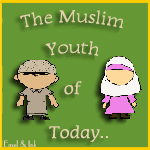http://www.islamreligion.com/articles/36/
Belief in the scriptures revealed by God is the third article of Islamic faith.
We can identify four main reasons for the revelation of scriptures:
1. The scripture revealed to a prophet is a point of reference to learn the religion and obligations towards God and fellow human beings. God reveals Himself and explains the purpose of human creation through revealed scriptures.
2. By referring to it, disputes and differences between its followers in matter of religious belief and practice or in matters of social practice could be settled.
3. The scriptures are meant to keep the religion safe from corruption and deterioration, at least for some time after the death of the prophet. At the present time, the Quran revealed to our Prophet Muhammad, may the mercy and blessings of God be upon him, is the only scripture to remain safe from corruption.
4. It is God’s proof against human beings. They are not allowed to oppose or overstep it.
A Muslim firmly believes that divinely revealed books were actually revealed by the compassionate God to His prophets to guide mankind. The Quran is not the only spoken word of God, but God also spoke to prophets before Prophet Muhammad.
“…and to Moses God spoke directly.” (Quran 4:164)
God describes true believers are those who: “…believe in what has been sent down to you (Muhammad) and what has been sent down before you…” (Quran 2:4)
The most important and central message of all scriptures was to worship God and God alone.
“And we sent never a prophet before you except that we revealed to him, saying, ‘there is no God but I, so worship Me.’” (Quran 21:25)
Islam is more inclusive in the holy revelations it affirms than any other heavenly religion in its present form.
Muslims uphold and respect the following scriptures:
1. The Quran itself, revealed to the Prophet Muhammad.
2. The Torah (Tawrah in Arabic) revealed to the Prophet Moses (different from the Old Testament read today).
3. The Gospel (Injeel in Arabic) revealed to Prophet Jesus (different from the New Testament read in churches today).
4. The Psalms (Zaboor in Arabic) of David.
5. The Scrolls (Suhuf in Arabic) of Moses and Abraham.
Third, Muslims believe whatever is true in them and has neither been altered or deliberately misconstrued.
Fourth, Islam affirms that God revealed the Quran as a witness over the previous scriptures and confirmation of them, because He says therein: “And We have sent down to you (O Muhammad) the book (the Quran) in truth, confirming the scripture that came before it and trustworthy in highness and a witness over it (the collection of old scriptures)…” (Quran 5:48)
Meaning the Quran confirms whatever is true in previous scriptures and rejects whatever alterations and changes human hands have made to them.
Original Scriptures and the Bible
We must distinguish between two matters: the original Torah, Gospel, and Psalms and the present day Bible. The originals were God’s revelation, but the present day Bible does not have the exact original scripture.
No divine scripture exists today in the original language it was revealed in, except the Quran. The Bible was not revealed in English. Different books of today’s Bible are at best tertiary translations and different versions exist. These multiple translations were done by people whose knowledge, skill, or honesty is not known. As a result, some bibles are larger than others and have contradictions and internal inconsistencies! No originals exist. The Quran, on the other hand, is the only scripture in existence today in its original language and words. Not one letter of the Quran has been changed since its revelation. It is internally consistent with no contradictions. It is today as it was revealed 1400 years ago, transmitted by a rock-solid tradition of memorization and writing. Unlike other sacred texts, the entire Quran has been memorized by almost every Islamic scholar and hundreds of thousands of ordinary Muslims, generation after generation!
The previous scriptures essentially consist of:
1. Stories of man’s creation and earlier nations, prophesies of what was to come like signs before the Judgment Day, appearance of new prophets, and other news.
The stories, prophecies, and news in the Bible read in churches and synagogues today are partly true and partly false. These books consist of some translated fragments of the original scripture revealed by God, words of some prophets, mixed with explanations of scholars, errors of scribes, and outright malicious insertions and deletions. Quran, the final and trustworthy scripture, helps us sort out fact from fiction. For a Muslim, it is the criterion to judge the truth from the falsehood in these stories. For example, the Bible still contains some clear passages pointing to God’s unity [1]. Also, some prophecies regarding the Prophet Muhammad are found in the Bible as well [2]. Yet, there are passages, even whole books, almost entirely recognized to be forgeries and the handiwork of men [3].
2. Law and rulings, the allowed and prohibited, like the Law of Moses.
If we were to assume the law, that is the lawful and the prohibited, contained in the previous books did not suffer corruption, the Quran still abrogates those rulings, it cancels the old law which was suitable for its time and is no longer applicable today. For example, the old laws pertaining to diet, ritual prayer, fasting, inheritance, marriage and divorce have been cancelled (or, in many cases, reaffirmed) by the Islamic Law.
The Holy Quran
The Quran is different from other scriptures in the following respects:
1. The Quran is miraculous and inimitable. Nothing similar to it can be produced by human beings.
2. After the Quran, no more scriptures will be revealed by God. Just as the Prophet Muhammad is the last prophet, the Quran is the last scripture.
3. God has taken it upon Himself to protect the Quran from alteration, to safeguard it from corruption, and to preserve it from distortion. On the other hand, previous scriptures suffered alteration and distortion and do not remain in their originally revealed form.
4. The Quran, for one, confirms early scriptures and, for another, is a trustworthy witness over them.
5. The Quran abrogates them, meaning it cancels the rulings of the previous scriptures and renders them inapplicable. The law of the old scriptures is no longer applicable; the previous rulings have been abrogated with the new Law of Islam.
Footnotes:
[1] For example the declaration of Moses: “Hear, O Israel The Lord our God is one Lord” (Deuteronomy 6:4) and the announcement of Jesus: “...The first of all the commandments is, Hear, O Israel; the Lord our God is one Lord.” (Mark 12:29).
[2] Refer to (Deuteronomy 18:18), (Deuteronomy 33:1-2), (Isaiah 28:11), (Isaiah 42:1-13), (Habakkuk 3:3), (John 16:13), (John 1:19-21), (Matthew 21:42-43), and more.
[3] For example, refer to books of the Apocrypha.
Tuesday, October 13, 2009
Subscribe to:
Post Comments (Atom)





No comments:
Post a Comment